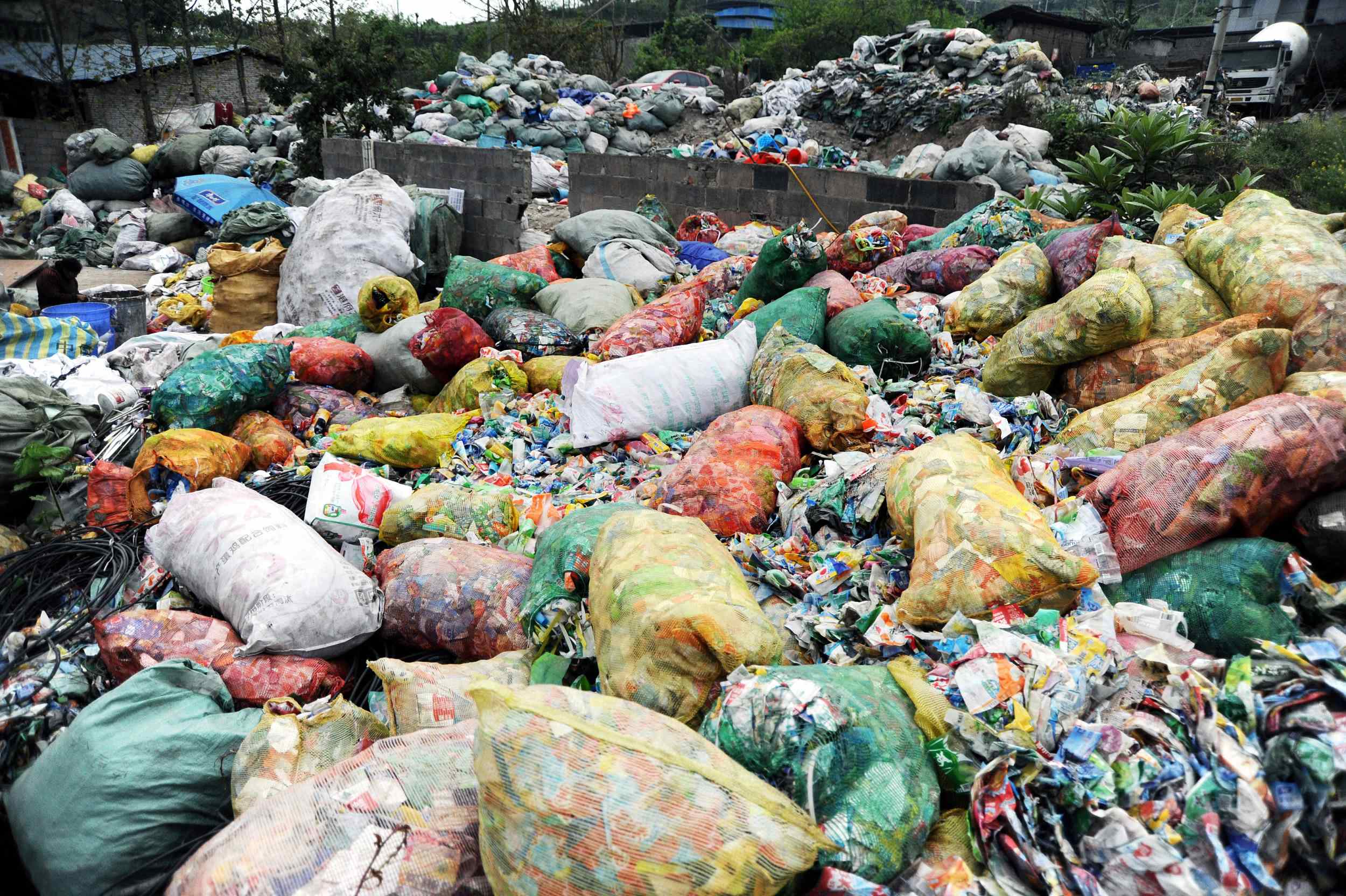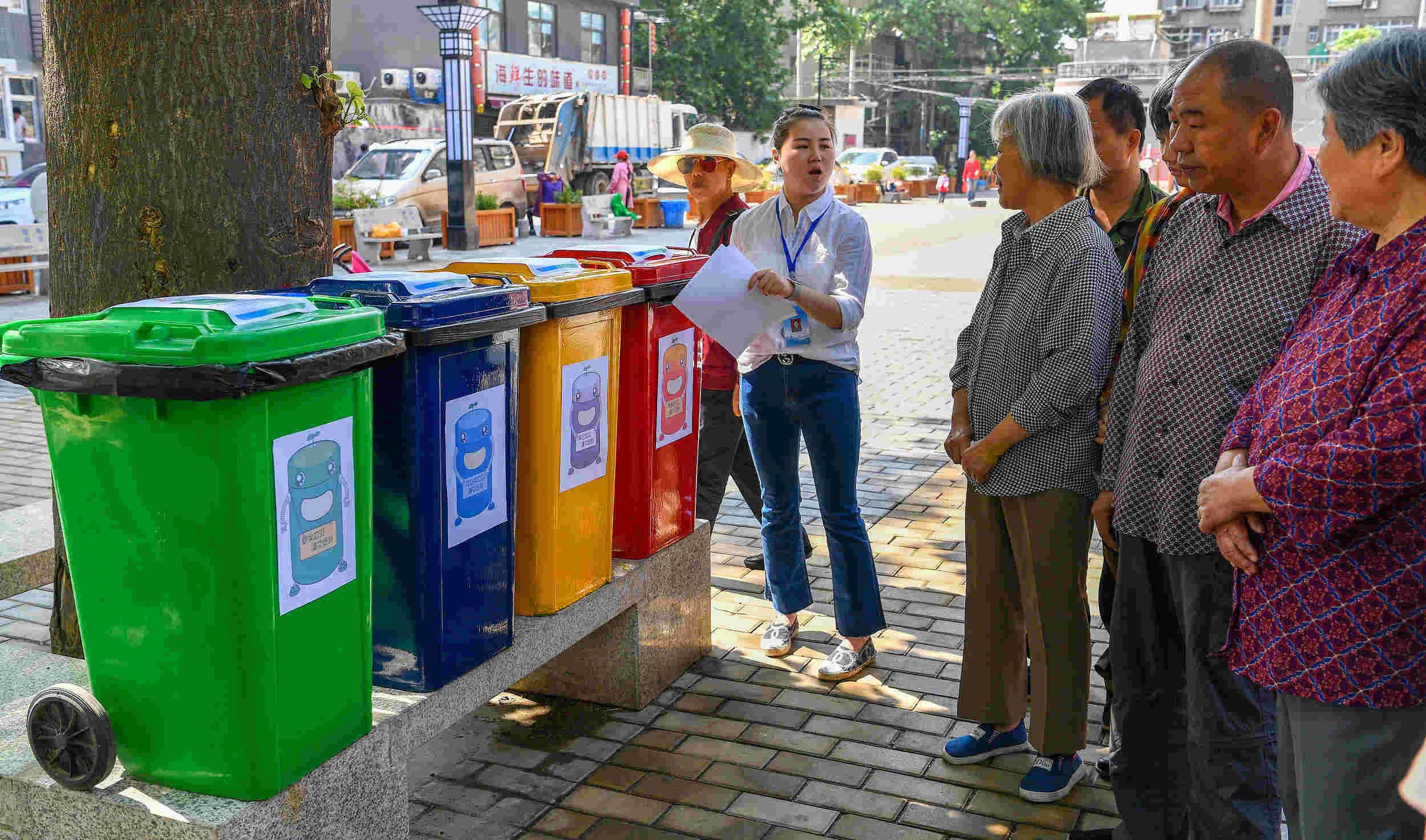Authorities in the southern Chinese city of Shenzhen introduced a garbage classification policy over the weekend, urging residents to get used to sorting trash.
It aims to place classified trash bins in all residential communities across the city by October and build a garbage collecting, transporting and disposal system.
Property management companies could face fines up to 5,000 yuan (about 729 US dollars) if they fail to notify residents about bin locations and collection times, and to cooperate with waste disposal services, under new regulations. Institutions and organizations including government departments failing to sort their own waste will face a fine up to 1,000 yuan, residents may be fined 50 yuan.

A disposal site in Chongqing. /VCG Photo
The move is part of China's plan to deal with mounting waste.
The Ministry of Environmental Protection said the nation's 246 large and medium-sized cities produced over 1.85 billion tons of solid waste in 2015, spurring government plans to reduce landfill and step up recycling and incineration.
Shenzhen was the country's fourth-biggest producer of rubbish and collected 5.7 million tons of household waste, following Beijing, Shanghai and Chongqing.
China is aiming to invest nearly 200 billion yuan in 46 big cities to reach a target of recycling 35 percent of household garbage by the end of 2020.

A community worker tells residents about waste classification in Xi'an. /VCG Photo
Shenzhen, a city known as an innovation hub with a population of over 10 million, has vowed to recycle all household waste following the new regulation.
China has been teaching its people the art of sorting rubbish with pilot schemes in eight major cities since 2000, but it is finding it tough to raise participation.
Xu Haiyun, of the China Urban Construction Design and Research Institute, told CCTV that the problem is the lack of punitive measures for people who disobey recycling instructions.
It will take time for residents to get used to sorting trash. “Lots of people have the impression the waste is mixed up again during transport, and we need to make garbage sorting coherent,” Xu said.










